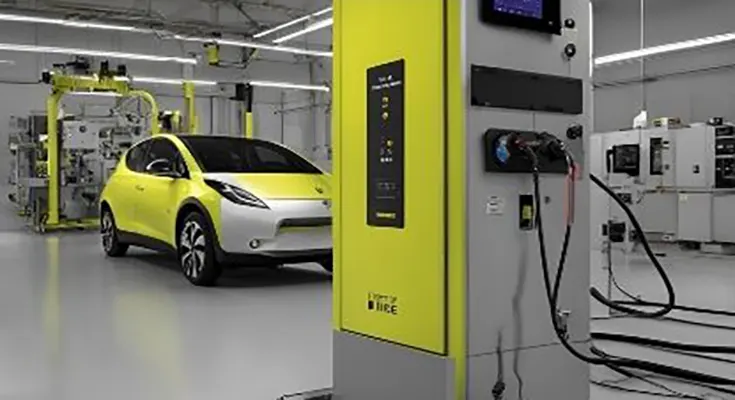As the demand for electric vehicles (EVs) grows, so does the quest for better battery technologies that can offer improved performance, reduced costs, and enhanced sustainability. Among the most promising innovations on the horizon is the lithium-sulfur (Li-S) battery. This next-generation battery technology has the potential to revolutionize the EV industry by addressing some of the limitations of current lithium-ion batteries. This article explores what lithium-sulfur batteries are, their advantages, challenges, and their future prospects in the electric vehicle market.
What Are Lithium-Sulfur Batteries?
Lithium-sulfur batteries are a type of rechargeable battery that uses lithium as the anode and sulfur as the cathode. The electrochemical reactions between these materials occur in a lithium-sulfur electrolyte, which facilitates the movement of lithium ions between the electrodes during charging and discharging cycles. The fundamental components of a lithium-sulfur battery include:
- Anode: Made of lithium metal, this electrode releases lithium ions during discharge and absorbs them during charging.
- Cathode: Composed of sulfur or sulfur-based compounds, this electrode interacts with the lithium ions from the anode.
- Electrolyte: A lithium-sulfur electrolyte that enables the movement of ions between the anode and cathode.
Advantages of Lithium-Sulfur Batteries
Higher Energy Density
One of the most significant benefits of lithium-sulfur batteries is their potential for higher energy density compared to traditional lithium-ion batteries. Sulfur has a theoretical energy density of approximately 500 Wh/kg, which is significantly higher than the 250 Wh/kg of current lithium-ion batteries. This means that lithium-sulfur batteries could store more energy per unit of weight or volume, potentially extending the driving range of electric vehicles and reducing the need for frequent recharging.
Lower Cost
Sulfur is more abundant and less expensive than the metals used in lithium-ion batteries, such as cobalt and nickel. This abundance makes lithium-sulfur batteries a more cost-effective option for large-scale applications. As the technology matures, the cost savings associated with sulfur could lead to more affordable electric vehicles, making them accessible to a broader range of consumers.
Environmental Benefits
The use of sulfur in batteries is not only economically advantageous but also environmentally friendly. Sulfur is a byproduct of various industrial processes and is less harmful to the environment compared to the rare metals used in traditional batteries. Furthermore, the potential for improved recyclability of sulfur-based batteries adds to their sustainability profile.
Potential for Lightweight Design
Due to their higher energy density, lithium-sulfur batteries can offer the same or better performance while being lighter than lithium-ion batteries. This reduction in weight can improve the efficiency of electric vehicles, leading to better acceleration, handling, and overall performance.
Challenges and Limitations
Despite their promising advantages, lithium-sulfur batteries face several challenges that need to be addressed before they can become a mainstream technology for electric vehicles.
Limited Cycle Life
One of the primary challenges with lithium-sulfur batteries is their limited cycle life. During charge and discharge cycles, sulfur electrodes can experience significant degradation, leading to a decrease in battery performance over time. Researchers are actively working on developing more durable sulfur compounds and enhancing the battery’s overall lifespan.
Low Conductivity
Sulfur has low electrical conductivity, which can affect the efficiency of lithium-sulfur batteries. Researchers are exploring various methods to improve the conductivity of sulfur electrodes, such as using conductive additives or composite materials to enhance performance.
Development Costs
The development and manufacturing processes for lithium-sulfur batteries are still in the early stages, and scaling up production to meet the demands of the automotive market presents challenges. Significant investments in research and development, as well as advancements in manufacturing techniques, are required to make lithium-sulfur batteries commercially viable.
Current Developments and Future Outlook
Many companies and research institutions are actively working on advancing lithium-sulfur battery technology. Companies like OXIS Energy, Sion Power, and Ilika are leading the charge in developing prototypes and scaling up production processes. Governments and automotive manufacturers are also investing in research to accelerate the commercialization of lithium-sulfur batteries.
As research progresses, improvements in the performance and cost-effectiveness of lithium-sulfur batteries are expected. If these challenges can be overcome, lithium-sulfur batteries could become a transformative technology for electric vehicles, offering longer ranges, reduced costs, and enhanced environmental benefits.
Lithium-sulfur batteries hold significant promise for the future of electric vehicles, with their potential for higher energy density, lower costs, and environmental sustainability. While challenges such as limited cycle life and low conductivity need to be addressed, ongoing research and development efforts are paving the way for advancements in this technology.
As the automotive industry continues to seek innovative solutions to meet the growing demand for electric vehicles, lithium-sulfur batteries could play a crucial role in shaping the future of sustainable transportation. With continued investment and breakthroughs in battery technology, lithium-sulfur batteries may soon become a cornerstone of the next generation of electric vehicles, driving us toward a cleaner and more efficient automotive future.





